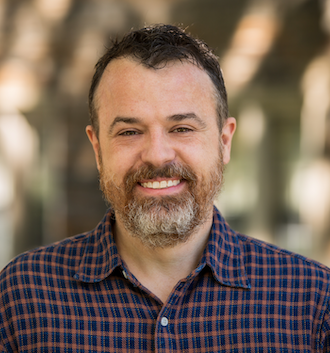Longitudinal Data Analysis Using R - Online Course
A 4-Day Livestream Seminar Taught by
Stephen VaiseyTuesday, August 5 –
Friday, August 8, 2025
10:30am-12:30pm (convert to your local time)
1:30pm-3:00pm
The most common type of longitudinal data is panel data or repeated measures data, consisting of measurements of predictor and response variables at two or more points in time for many individuals (or other units). Panel data enable two major advances over cross-sectional data:
-
- the ability to model the evolution of outcomes over time; and
- the ability to “control” for unobserved unit-specific heterogeneity, enabling better causal inferences.
Different data structures allow researchers to use panel data in different ways. In this course, we will focus on the following approaches:
-
- Mixed models (including random growth curves)
- Two period difference-in-differences
- Fixed-effects models (one-way and two-way)
- Between-within models
- Dynamic panel models
In addition to considering these approaches and their implementation in R, we will discuss when each is (not) suitable given data constraints. We will also consider how to adapt these approaches to deal with limited dependent variables (especially binary outcomes).
Starting August 5, we are offering this seminar as a 4-day synchronous*, livestream workshop held via the free video-conferencing software Zoom. Each day will consist of two lecture sessions which include hands-on exercises, separated by a 1-hour break. You are encouraged to join the lecture live, but will have the opportunity to view the recorded session later in the day if you are unable to attend at the scheduled time.
*We understand that finding time to participate in livestream courses can be difficult. If you prefer, you may take all or part of the course asynchronously. The video recordings will be made available within 24 hours of each session and will be accessible for four weeks after the seminar, meaning that you will get all of the class content and discussions even if you cannot participate synchronously.
Closed captioning is available for all live and recorded sessions. Captions can be translated to a variety of languages including Spanish, Korean, and Italian. For more information, click here.
This is a hands-on course with opportunity for you to practice the different methods using various R packages.
Computing
The vast majority of what you will learn in this course can be applied in any software package. However, this seminar will mostly use R for empirical examples and exercises. To replicate the instructor’s workflow in the course, you should have R and RStudio already installed on your computer when the course begins.
Stata notes and syntax are available upon request.
Basic familiarity with R is highly desirable. If you are new to R, check out Professor Vaisey’s one-hour Introduction to R video to get up to speed. You may want to consider taking a short introductory seminar on R like Introduction to R for Data Analysis, R for SPSS Users, or R for Stata Users. But even novice R coders will be able to follow the lectures and do the exercises.
If you’d like to take this course but are concerned that you don’t know enough R, there are excellent on-line resources for learning the basics. Here are our recommendations.
The vast majority of what you will learn in this course can be applied in any software package. However, this seminar will mostly use R for empirical examples and exercises. To replicate the instructor’s workflow in the course, you should have R and RStudio already installed on your computer when the course begins.
Stata notes and syntax are available upon request.
Basic familiarity with R is highly desirable. If you are new to R, check out Professor Vaisey’s one-hour Introduction to R video to get up to speed. You may want to consider taking a short introductory seminar on R like Introduction to R for Data Analysis, R for SPSS Users, or R for Stata Users. But even novice R coders will be able to follow the lectures and do the exercises.
If you’d like to take this course but are concerned that you don’t know enough R, there are excellent on-line resources for learning the basics. Here are our recommendations.
Who should register?
This course is for anyone who wants to learn to analyze repeated measures panel data. You should have a basic foundation in linear regression.
This course is for anyone who wants to learn to analyze repeated measures panel data. You should have a basic foundation in linear regression.
Seminar outline
- What is panel data?
- Long form and wide form
- Within and between variation
- Mixed models (growth curves) for time-constant treatments
- Introduction to fixed effects (“within” estimation)
- Pre-test/post-test designs
- Two-period difference-in-differences
- Two-way fixed effects
- Between-within models for time-varying treatments
- Introduction to linear structural equations for panel data
- Introduction to dynamic panel models
- What is panel data?
- Long form and wide form
- Within and between variation
- Mixed models (growth curves) for time-constant treatments
- Introduction to fixed effects (“within” estimation)
- Pre-test/post-test designs
- Two-period difference-in-differences
- Two-way fixed effects
- Between-within models for time-varying treatments
- Introduction to linear structural equations for panel data
- Introduction to dynamic panel models
Payment information
The fee of $995 includes all course materials.
PayPal and all major credit cards are accepted.
Our Tax ID number is 26-4576270.
The fee of $995 includes all course materials.
PayPal and all major credit cards are accepted.
Our Tax ID number is 26-4576270.

